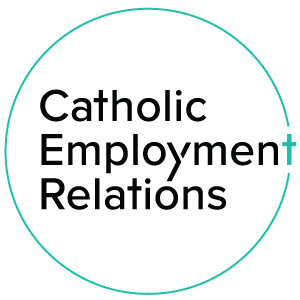Fair Work Legislation Amendment - update #1
* This article is a transcript of selected sections of our CER matters podcast episode # 1.
The Fair Work Legislation Amendment (Secure Jobs, Better Pay) Act 2022 (amendment) is a set of changes to Australia's workplace laws that were introduced in 2021. The amendments were made to the Fair Work Act 2009, which governs employment relationships and workplace rights and obligations in Australia. Several of the changes are already in effect. They came into force the day after the bill received Royal Assent on 6 December last year. Many other changes will come into force at various points throughout 2023, with most commencing from 7 June. Download our timeline here.
The changes introduced by the amendment, which we will cover in this update, include:
Abolition of the Australian Building and Construction Commission (ABCC) and Registered Organisations Commission (ROC)
Prohibition on pay secrecy
Prohibition on advertising contravening pay rates
Sunsetting ‘zombie’ agreements
Abolition of the Australian Building and Construction Commission (ABCC)
On 10 November 2022, certain functions and responsibilities carried out by the ABCC were transferred to the FWO.
The ABCC has been abolished from 6 February 2023, and its regulatory responsibilities, dealing with workplace relations matters in the building and construction industry, including investigating and taking legal action for breaches of relevant legislation, and all proceedings currently instituted by the ABCC, have been transferred to the FWO.
All of the ABCC's regulatory responsibilities and existing ABCC matters will be transferred to the Fair Work Ombudsman (FWO).
Abolition of the Registered Organisations Commission
The Registered Organisations Commission (ROC) will also be abolished on 6 June 2023.
Its regulatory responsibilities, as the independent regulator of Unions and Employer Associations, and existing matters will be transferred to the General Manager of the Fair Work Commission.
Prohibition on pay secrecy
This is a measure which the Government introduced to address the gender wage gap. The provisions give a workplace right to employees to disclose their remuneration to other employees, and that includes anything else which determines their remuneration outcomes, such as bonus arrangements.
Employees now also have a workplace right to ask other employees about their remuneration. Of course, employees have no obligation to share this information with other employees, but they now have the right to disclose it, if they wish to do so.
If the contract of employment was made or varied after 7 December 2022 and has a clause in it which restricts an employee’s right in relation to pay secrecy, it will not have any effect.
There are also civil penalties that apply from June this year. If an employer enters into any written agreement with an employee (not just an employment contract) and that agreement contains a term which is inconsistent with an employee’s right in relation to pay secrecy, it will amount to a contravention, and the employer may be subject to civil penalties.
Recommendations for employers to avoid contravening the Act or retaining terms in agreements which won’t have any effect
Review your employment contract templates, policies and procedures and remove any clauses which would be inconsistent with the pay secrecy provisions.
If you need to make a variation to an existing employment contract, review the contract to ensure to does not contain a pay secrecy clause.
Ensure that people leaders in your organisation are aware of these new pay secrecy provisions so that they don’t do anything or say anything which would offend an employee’s workplace right to ask or disclose their remuneration to another employee.
Prohibition on advertisement of contravening pay rates
This new provision prohibits employers from advertising, or causing to be advertised, employment at a rate of pay that would contravene the FW Act or a fair work instrument.
So that includes advertising pay rates which are below what is provided for under the relevant modern award or enterprise agreement. This applies to jobs advertised from 7 January 2023.
For example, if an employer posts advertisement on their careers website for a job at a lower rate of pay than the relevant classification in an enterprise agreement that applies to that work, it would amount to a breach, unless the employer has a ‘reasonable excuse’. An employer may be liable for civil penalties if found to be in breach of these provisions.
The defence of reasonable excuse will depend on the circumstances of the individual case. It would include an excuse which would be accepted by a reasonable person to justify the non-compliance. An example of that may be that the employer had relied on advice from a relevant professional about compliant pay rates and that advice turned out to be incorrect.
Sunsetting ‘zombie’ agreements
They are very old industrial instruments made before the Fair Work Act or during the bridging period in 2009 when we were transitioning from WorkChoices to the Fair Work Act. This has no relevance to most employers. Only those few who are still applying one of those old instruments.
For employers that have a ‘zombie’ agreement, they will automatically terminate after the sunset period which will expire on 7 December 2023. Employers who have a ‘zombie agreement’ are required to notify affected employees of the termination by 6 June.
Listen to the CER matters podcast
Fair Work Legislation Amendment (Secure Jobs, Better Pay) Act 2022 - how will the changes affect your organisation, and when exactly will they come into effect?
Download your free guide and timeline which provides detailed information on the important dates and issues that will need to be addressed to ensure compliance.
Our professional CER team are here to help you understand your obligations and ensure that you have sufficient procedures and processes in place. Contact enquiry@cer.catholic.org.au.

